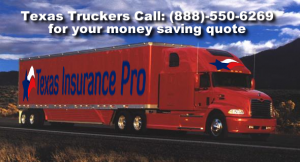Because of this website (a maybe the fact that I’m a trucking insurance nerd), I often receive phone calls from professional truck drivers all the time! Just like you, most drivers are very nice people that want to make an honest living. Just like you, most drivers want the best possible rates on their trucking insurance. Lately, it has become more difficult to find lower rates for truck drivers. In fact, some cases are so difficult, that I have to turn drivers away for safety reasons. Did you know that your DOT records could affect your insurance rates? Here are a few things you may not have considered when it comes to your insurance policy.
 What is SAFER?
What is SAFER?
To understand your safety record, you need to know that each time you have a DOT inspection; the government documents the results in an online database. If you own a truck and have never been to this website, you owe it to yourself to take a moment to get familiar with SAFER. If you are unable to visit SAFER, take it from me. The following information SAFER INFORMATION can (AND WILL) haunt you when you are shopping for insurance:
- Trucking Liability Insurance Policy Information – Your insurance policy information follows your motor carrier number. In other words, the government documents whether you keep your insurance policy current along with the amount of coverage you carry.
- Cargo Liability – Along with your trucking liability, the government also provides your cargo liability for freight brokers and (more importantly) the public to review.
- Inspection Results – Each time the DOT inspects your truck, the government documents any violations on your SAFER record.
- Out of Service Violations – All inspection violations that result in an out of service violation are documented.
Why does this matter?
The federal motor carrier safety administration’s goal is to make sure the roadways are safe for all drivers. As a result, all commercial vehicles must follow strict safety guidelines. Quite often, the government will monitor habitual safety violators and revoke operating authorities. How many times have you heard of a bus operator being shut down due to their safety records? Unbelievably, this happens to truckers too.
What is the insurance company’s role?
Like most businesses, insurance companies want to make a profit. As a result, they check your safety records too. Consider this, an insurance company (or agent) that writes a $1,000,000 liability for a company with a poor record becomes liable for any claims that company causes. Simply put, the insurance company has more at risk. Essentially, each time you put a truck on the road, the insurance writes a $1,000,000 check in hopes of not having to cash that check. The next time you look at your insurance card, look at it as a $1,000,000 check. If that doesn’t make sense, here’s an example.
Imagine this, a driver that you know fails to perform a pre-trip inspection. As result, that driver ignores a worn tire that has visible wear. While driving through an area with a steep grade, the driver blows a set of tires on one side of his trailer causing the load to shift. Unable to control the unstable load on a steep grade, that truck plows into a car full of people. Who gets the blame for this accident? While the driver gets upset because his driving record is affected. The injuries and property damage cause the family much more grief. The insurance company becomes liable for the driver’s claim. Ultimately, the family’s attorney sues the insurance company for the driver’s $1,000,000 policy limits.
While the previous scenario sounds like it could never happen to you, this happens quite frequently. To mitigate these types of claims, insurance companies now ask agents to check a motor carrier’s safer record prior to quoting and binding a truck insurance policy. In fact, many companies have changed their underwriting requirements for drivers looking for insurance. For drivers with more than 2 out of service violations over a 24-month period, finding insurance will become more difficult and expensive.
What’s you role?
I tell every truck driver that trucking is a team sport. Just because you are an owner operator does not mean you need to do things by yourself. Like most trucking companies, you probably have an insurance person, a freigh broker (or two), a factoring company, and probably a tax consultant. Why shouldn’t you have a maintenance person. You owe it to yourself to make sure that you have a maintenance program in place. Regardless of whether you are an owner-operator with one truck, or whether you own a small fleet of 5 to 10 trucks, your safety records follow you and your company.
Utilize every tool you have available. Inspect your vehicle before every trip. Avoid letting something as little as a tire with low pressure affect your truck insurance rates and your ability to run a profitable and successful business. If you have questions, please connect with me and ask any questions. I love feedback and questions from drivers like you.
